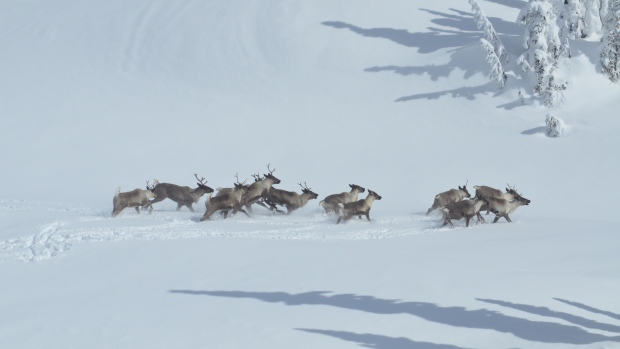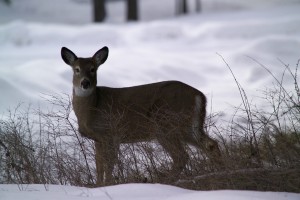University of Alberta researcher Robert Serrouya has a solution to restoring British Columbia’s ailing caribou populations, and it isn’t calling for the additional culling of wolves.
While wolves remain plentiful on the BC landscape and their numbers require sound management, Serrouya has investigated additional conservation solutions to restore caribou populations. As the culling or hunting of wolves continues to come under scrutiny, Serrouya’s research has shown that additional hunting opportunities for both moose and deer would greatly increase caribou survival in areas where populations are dwindling.
“There’s about 50 herds in B.C., and only 10 per cent of those are stable or increasing [their populations],” Serrouya told CBC News. “The rest are declining or not doing very well.”
According to his report, as deer and moose populations in British Columbia continue to increase, not only do they compete for food resources, but those animals bring along predators that may have not otherwise be present.
Enticing wolves into caribou territory, Serrouya’s research suggests that more caribou are being killed as “bycatch”- unintentionally killed prey – as wolves move into the area after deer and moose.
“They’re not the main animal that sustains the predators but they get taken on the side and that can lead to extinction,” he says.
In addition to outpacing caribou in terms of reproduction, moose and deer are better equipped to deal with predators such as wolves. While he does not advocate for the removal of all wolf management programming, he does believe the culling of wolves in the area is simply a “Band-Aid solution.”
According to his research, as moose hunting has increased in certain areas, wolves have actually been documented leaving the area and consequently reproducing at lower rates.
While Serrouya does not believe that an increase in hunting opportunities will completely remedy the problems facing British Columbia’s caribou, but when paired with sound management and maternal penning operations, it could be all they need to get back on the right foot, er, hoof.




